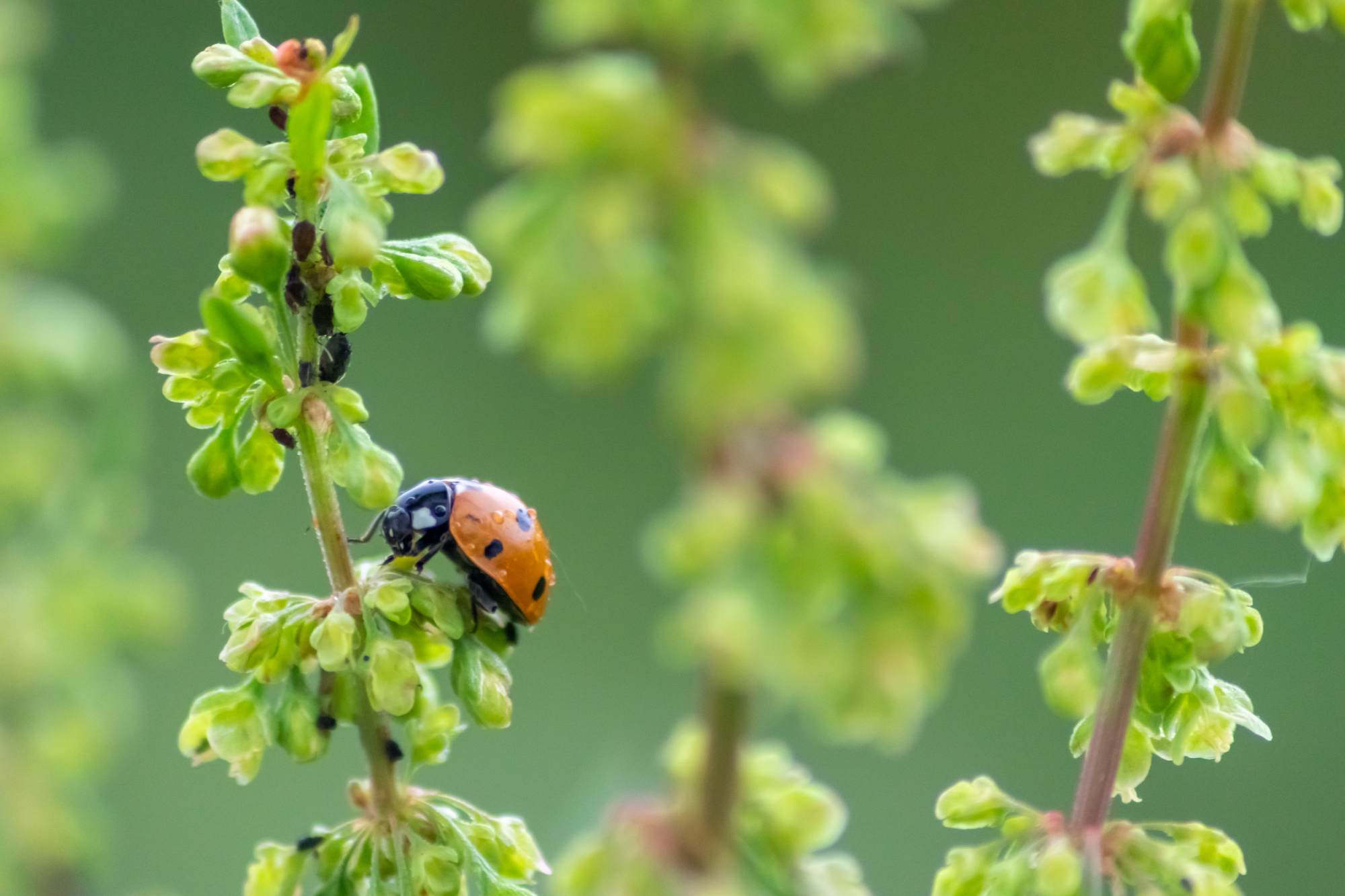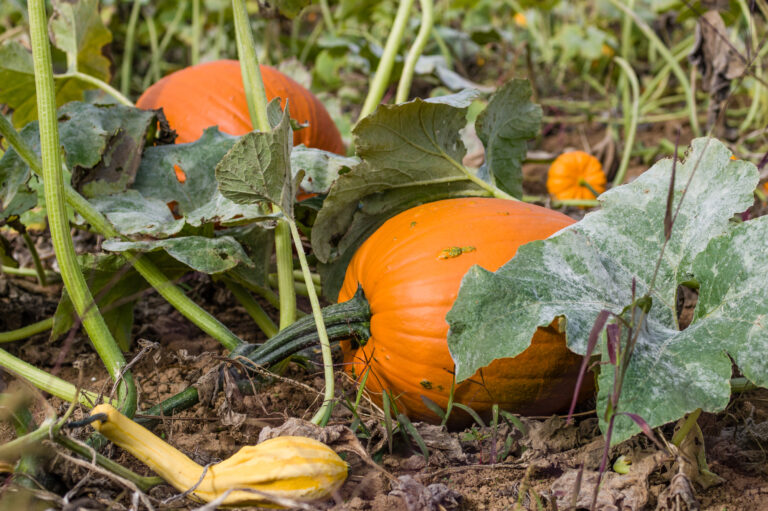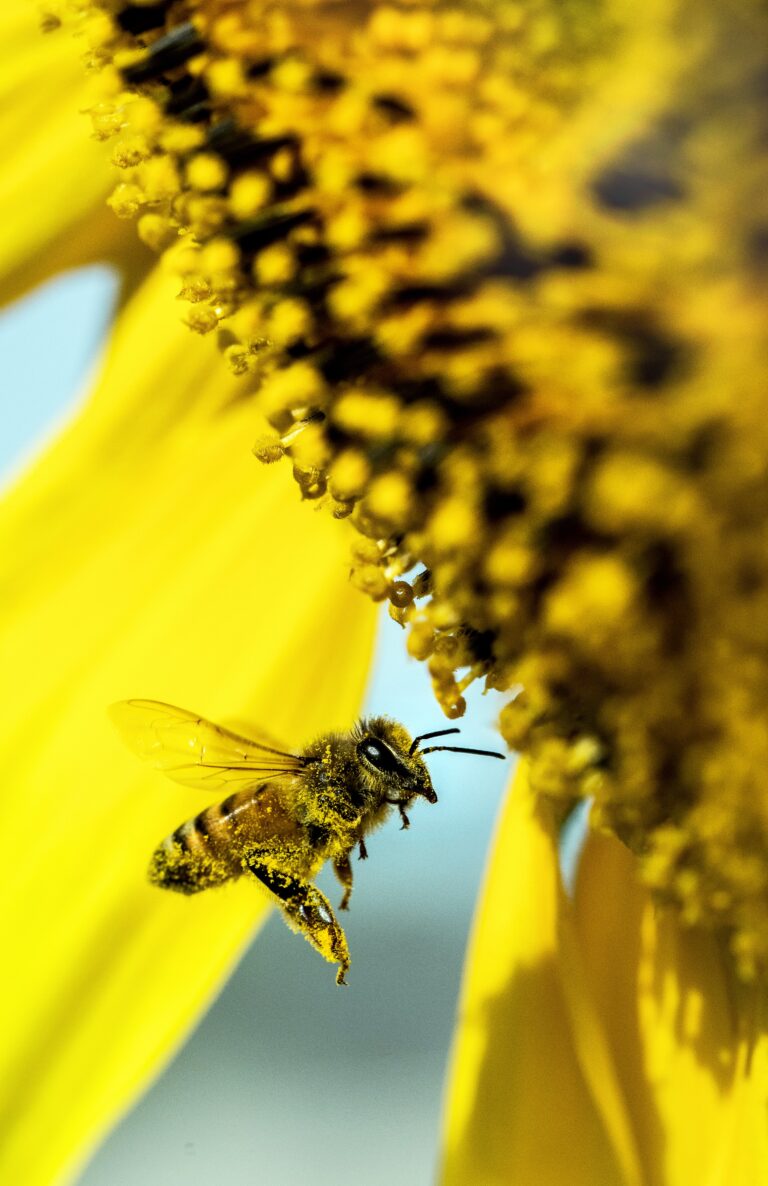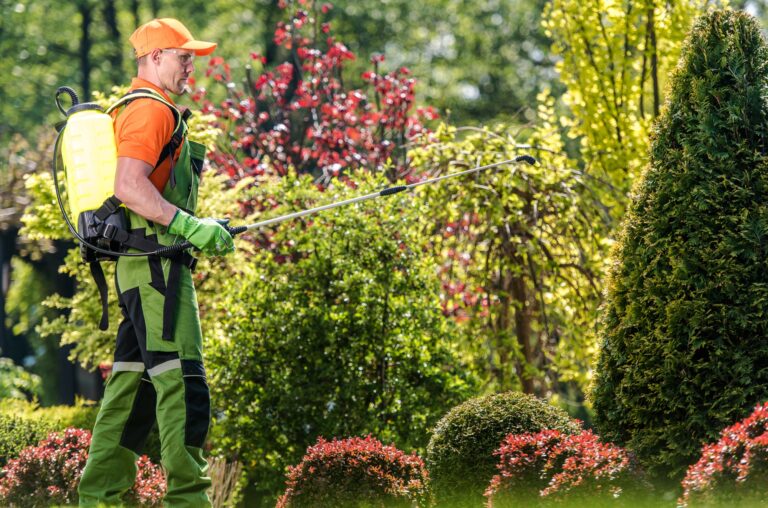All natural pest control
Natural pest control for gardens is an eco-friendly and effective way to manage pests without the use of harmful chemicals. Gardeners who prioritize sustainability and organic practices can benefit from natural pest control methods that are safe for both the environment and the garden’s inhabitants. With the growing concern over the impact of synthetic pesticides on human health and the environment, natural pest control has become an increasingly popular alternative.
There are many natural pest control methods that can be used to keep pests at bay in the garden. One of the most effective methods is companion planting, which involves planting certain plants together to repel pests or attract beneficial insects that prey on pests. Another method is using physical barriers such as row covers or netting to keep pests from accessing plants. Additionally, homemade remedies such as garlic spray and neem oil can be used to deter pests without harming the environment. By incorporating natural pest control methods into their gardening practices, gardeners can enjoy a healthy and thriving garden while minimizing their impact on the environment.
Understanding Pests in Your Garden
When it comes to natural pest control in gardens, the first step is understanding the pests that are present. This knowledge can help gardeners take appropriate measures to control them without harming the environment.
Some common pests found in gardens include aphids, slugs, snails, caterpillars, and mites. These pests can cause damage to plants, reduce yields, and create an unsightly appearance. However, not all insects found in gardens are pests. Some beneficial insects, such as ladybugs, lacewings, and praying mantises, can help control pest populations.
It is important to identify the pests present in your garden before taking any action. This can be done by inspecting plants regularly for signs of damage or by setting up traps to catch the pests. Once identified, gardeners can choose from a variety of natural pest control methods, such as companion planting, crop rotation, and the use of natural predators.
Companion planting involves planting certain plants together that have natural pest-repelling properties. For example, planting marigolds with tomatoes can help repel aphids. Crop rotation involves planting different crops in the same area each year to reduce pest populations. Natural predators, such as birds, frogs, and spiders, can also be encouraged to help control pests.
By understanding the pests in your garden and using natural pest control methods, gardeners can maintain healthy plants and a thriving garden without harming the environment.
Natural Pest Control Methods
Biological Control
Biological control is a natural pest control method that involves introducing natural enemies of pests to control their population. These natural enemies can be predators, parasites, or pathogens. For instance, ladybugs are known to feed on aphids, while nematodes can control soil-dwelling pests. This method is safe for the environment and does not harm beneficial insects.
Botanical Insecticides
Botanical insecticides are derived from plants and are effective in controlling pests. Pyrethrins, for example, are extracted from chrysanthemum flowers and are used to control a wide range of insects. Neem oil is another botanical insecticide that is effective in controlling pests such as aphids, whiteflies, and spider mites. These insecticides are safe for humans and the environment.
Diatomaceous Earth
Diatomaceous earth is a natural and effective pest control method that works by dehydrating insects. It is made from the fossilized remains of diatoms and is available in powder form. When insects come into contact with diatomaceous earth, it absorbs the oils and fats from their exoskeleton, causing them to dehydrate and die. This method is safe for humans and pets.
In summary, natural pest control methods such as biological control, botanical insecticides, and diatomaceous earth are effective and safe alternatives to chemical pesticides. They are environmentally friendly and do not harm beneficial insects.
Preventive Measures
Gardeners who want to avoid using chemical pesticides can take several preventative measures to control pests in their gardens. These measures are environmentally friendly and can also be cost-effective.
Crop Rotation
Crop rotation is a technique used to minimize the buildup of pests in the soil. By rotating crops, gardeners can disrupt the lifecycle of pests and reduce their numbers. For example, if a gardener grows tomatoes in one area of the garden one year, they can plant beans or peas in that area the following year. This will help to reduce the number of pests that attack tomatoes.
Healthy Soil Management
Healthy soil management is another way to control pests in the garden. Gardeners can improve soil health by adding compost or other organic matter to the soil. This will help to promote the growth of beneficial microorganisms that can help control pests. Additionally, healthy soil can help plants grow stronger and more resistant to pests.
Use of Resistant Varieties
Gardeners can also choose to plant varieties of plants that are resistant to pests. For example, some tomato varieties are resistant to certain types of pests. By planting these varieties, gardeners can reduce the need for chemical pesticides.
By taking these preventative measures, gardeners can control pests in their gardens without using harmful chemicals. These techniques are safe, effective, and environmentally friendly.
Beneficial Insects and Their Role
Ladybugs
Ladybugs, also known as ladybirds, are one of the most well-known beneficial insects. They are easily recognized by their bright red or orange bodies with black spots. Ladybugs feed on aphids, mites, and other soft-bodied insects that can damage plants. They are also known to eat the eggs of other pests, such as spider mites.
Praying Mantis
Praying mantis are another beneficial insect that can help control garden pests. These insects are known for their long, slender bodies and their ability to blend in with their surroundings. Praying mantis feed on a variety of insects, including grasshoppers, crickets, and flies. They are also known to eat other beneficial insects, so it’s important to use them in moderation.
Predatory Mites
Predatory mites are tiny, spider-like insects that feed on other mites and small insects. They are often used to control spider mites, which can be a serious pest in gardens. Predatory mites are typically introduced into the garden as part of a biological control program. They are also available for purchase online or at garden centers.
In conclusion, beneficial insects can play an important role in natural pest control for gardens. Ladybugs, praying mantis, and predatory mites are just a few examples of the many beneficial insects that can help keep your garden healthy and thriving. By using these natural pest control methods, you can reduce the need for harmful chemicals and create a more sustainable garden ecosystem.
Homemade Natural Pesticides
Gardeners who prefer natural methods to control pests can make their own pesticides using common household ingredients. These homemade pesticides are not only effective in controlling pests but also safe for the environment and beneficial insects. Here are some easy-to-make natural pesticides:
Garlic Insecticide Spray
Garlic insecticide spray is an effective natural pesticide that repels a wide range of pests. Garlic contains sulfur compounds that are toxic to insects. To make garlic insecticide spray, follow these steps:
- Crush 10-12 garlic cloves and mix them with 1 quart of water.
- Let the mixture sit overnight.
- Strain the mixture and add 1 teaspoon of liquid soap.
- Pour the mixture into a spray bottle and apply it to the affected plants.
Repeat the application every few days until the pests are gone.
Chili Pepper Insecticide Spray
Chili pepper insecticide spray is another effective natural pesticide that repels pests. Capsaicin, the active ingredient in chili peppers, is toxic to insects and can deter them from feeding on plants. To make chili pepper insecticide spray, follow these steps:
- Mix 2 tablespoons of chili powder or 1 tablespoon of cayenne pepper with 1 quart of water.
- Add 1 teaspoon of liquid soap to the mixture.
- Pour the mixture into a spray bottle and apply it to the affected plants.
Repeat the application every few days until the pests are gone.
Vinegar Solution
Vinegar solution is a natural pesticide that is effective in controlling many types of pests. The acetic acid in vinegar disrupts the insect’s nervous system, leading to their death. To make vinegar solution, follow these steps:
- Mix equal parts of vinegar and water in a spray bottle.
- Add 1 teaspoon of liquid soap to the mixture.
- Shake the bottle well and apply the solution to the affected plants.
Repeat the application every few days until the pests are gone.
These homemade natural pesticides are easy to make and use. They are a safe and effective alternative to chemical pesticides and can help gardeners maintain a healthy and pest-free garden.
Monitoring and Regular Maintenance
To keep pests under control in a garden, it is important to regularly monitor and maintain the area. This can involve a variety of tasks, including:
- Inspecting plants for signs of damage or infestation
- Removing any dead or diseased plant material
- Clearing away debris and fallen leaves
- Checking for standing water or other conditions that could attract pests
By staying on top of these tasks, gardeners can help prevent pest problems from getting out of hand. In addition, regular maintenance can help promote healthy plant growth and reduce the risk of disease.
One effective way to monitor for pests is to use sticky traps. These traps can be placed throughout the garden to catch flying insects such as aphids, whiteflies, and thrips. By regularly checking the traps and identifying any pests caught, gardeners can take action before an infestation becomes severe.
Another important aspect of pest control is to encourage natural predators. For example, ladybugs are known to feed on aphids, while praying mantises can help control a variety of pests. By planting flowers and herbs that attract these beneficial insects, gardeners can help keep pest populations in check.
Overall, monitoring and regular maintenance are key components of natural pest control in the garden. By taking a proactive approach and staying vigilant, gardeners can enjoy healthy plants and a thriving garden ecosystem.






